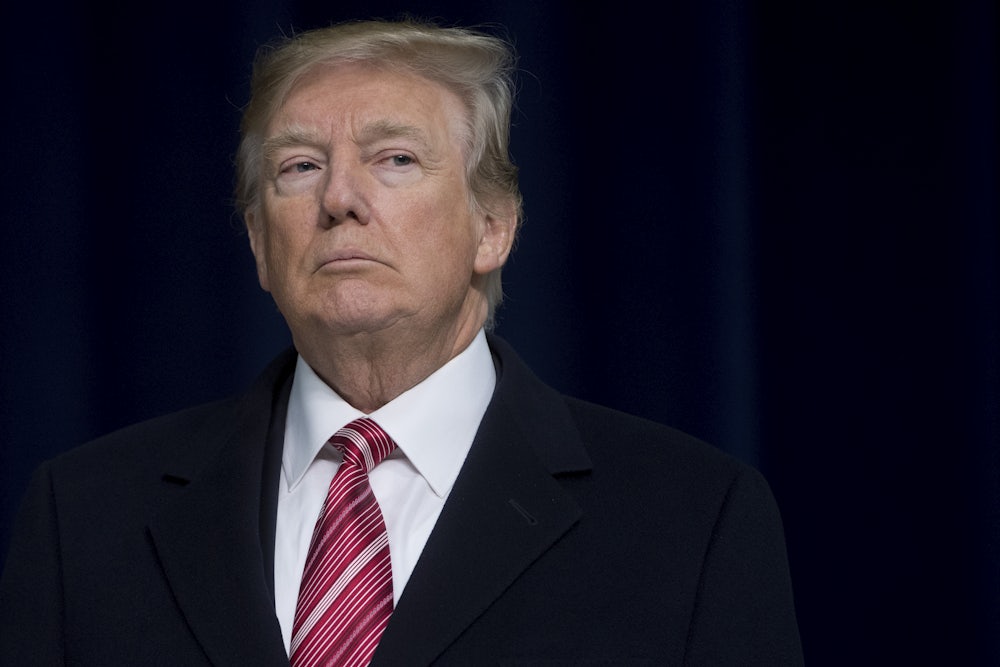In the aftermath of the twin shocks of 2016—Brexit on one side of the Atlantic, Donald Trump on the other—many in the media identified “fake news” as the culprit and as one of the emergent evils of the modern world. It was invoked the way terrorism was after 9/11: shadowy, stateless, destabilizing. It’s no surprise that, by June 2019, 50 percent of Americans viewed it as a bigger threat than terrorism, with 70 percent saying that it was greatly affecting trust in government institutions.
“Fake news,” of course, has led a double life. The term describes the spread of disinformation by Russian troll farms. It is also one of Donald Trump’s favorite phrases, which he barks at the reporters who document his corrupt administration. Charges of fake news once discredited figures like Trump—if the election that brought him to power was tainted by bots slinging propaganda, he cannot be a legitimate president—but they are also now used to discredit news organizations trying to hold the powerful accountable.
Still, fake news in the original sense is an abiding concern. We have been inundated with statistics documenting the millions of fake news stories on Facebook and Twitter and who was likely to fall for them. There have been congressional hearings about fake news, and Fiona Hill, a former foreign policy adviser in Trump’s White House, warned about foreign election interference during her testimony at November’s impeachment hearings. Disgust with fake news has led to a sharp drop in popularity for companies like Facebook and Twitter, which have been rightly blamed for doing too little to stop its spread on their platforms.
For all its ubiquity, though, fake news itself is not particularly well understood. We’re finally beginning to get studies about its actual efficacy. And the early academic literature suggests that the fear of fake news’s uniquely destructive power may be overblown.
In February 2018, Dartmouth professor Brendan Nyhan looked at the emerging academic work and concluded that, while “much more remains to be learned about the effects of these types of online activities,” we “should not assume they had huge effects.” In general, there is little evidence suggesting that fake news has had a major impact on how people view current events. Furthermore, fake news is most likely to reach “heavy news consumers,” whose opinions have already been set.
A study published last week bolsters Nyhan’s conclusions and offers another badly needed dose of reality for those who see fake news as an existential risk for liberal democracies. Authored by eight Duke University academics, the study finds few instances of Russian trolls turning voters into frothing Trumpers. “While there are myriad reasons to be concerned about the Russian trolling campaign—and future efforts from other foreign adversaries both online and offline—it is noteworthy that the people most at risk of interacting with trolls—those with strong partisan beliefs—are also the least likely to change their attitudes,” the authors write.
“In other words,” they say, “Russian trolls may not have significantly polarized the American public because they mostly interacted with those who were already polarized.” These trolls may play a role in keeping us polarized, but there is no evidence that they turned voters into Trump voters or, for that matter, that they played a major role in the extraordinary polarization of American society that now defines political life.
The fake news bots are still a polluting nuisance, of course. They are made worse by the business models of Facebook and Twitter, which reward idiotic and harmful discourse at the expense of thoughtful and reported work. But the real fake news problem is the one that we’ve had for more than a generation: a right-wing news ecosystem that has become unmoored from reality. Conservative outlets, whether they be Fox News or Breitbart, have consistently fed their readers a steady diet of propaganda.
As Yochai Benkler, one of the authors of the study, said in an interview with The Washington Post:
On the right, because audiences do not trust or pay attention to outlets outside their own ecosystem, there is no reality check to constrain competition. Outlets compete on political purity and stoking identity-confirming narratives. Outlets and politicians who resist the flow by focusing on facts are abandoned or vilified.… This forces media and political elites to validate and legitimate the falsehoods, at least through silence, creating a propaganda feedback loop.
None of this is to say that more shouldn’t be done to stop the bots and trolls that are already preparing memes for the 2020 elections. But they are a symptom of our polarized political environment, not the cause of it. There are ruthlessly propagandistic actors working tirelessly to mislead the public. But they’re not a troll army from Saint Petersburg. They’re Americans working at right-wing media outlets.
